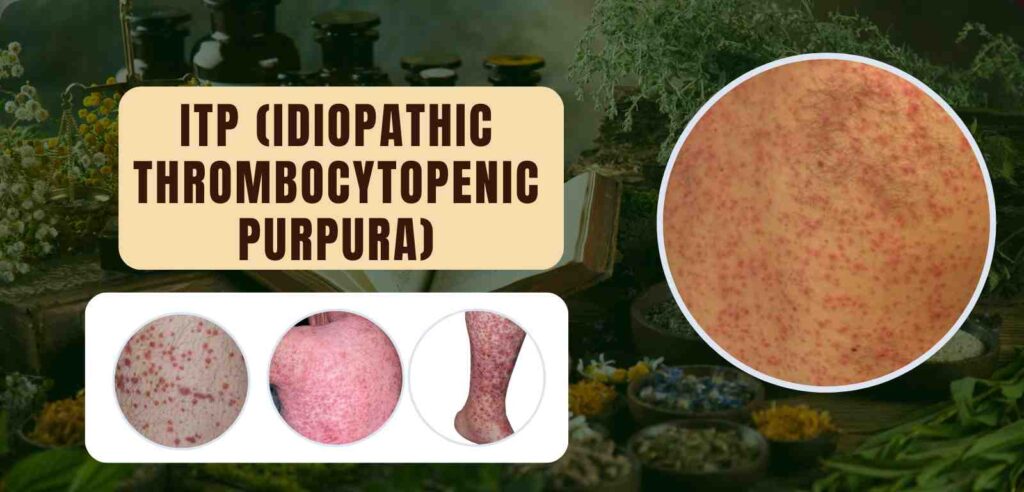
ITP (Idiopathic Thrombocytopenic Purpura)
Idiopathic Thrombocytopenic Purpura (ITP) is a disorder that can lead to easy or excessive bruising and bleeding.
The bleeding results from unusually low levels of platelets — the cells that help blood clot.
Idiopathic means the cause of the condition isn’t known.
Thrombocytopenic means there’s a lower-than-normal number of platelets in the blood.
Purpura refers to purple bruises caused by bleeding under the skin.
ITP can occur in both children and adults.
In children, it often occurs after a viral infection and is usually short-term, often going away on its own.
In adults, however, ITP tends to be chronic (long-term) and may require treatment.
Submit An Inquiry
Contact Us
Timing
- 1:00 PM To 6:00 PM
Visit Clinic
Symptoms of ITP can include easy or excessive bruising, superficial bleeding into the skin that appears as a
-Rash of pinpoint
-Sized reddish
-Purple spots,
-Prolonged bleeding from cuts,
-Spontaneous bleeding from the gums or nose,
-Blood in urine or stools,
-Unusually heavy menstrual flow.
1. Autoimmune Response: In ITP, the body’s immune system mistakenly targets and destroys platelets, which are cells that help the blood clot. This autoimmune response is thought to be triggered by an infection, and in some cases, the immune response continues long after the infection is gone.
2. Antibodies Against Platelets: The immune system produces antibodies against platelets. Antibodies are usually produced to fight off foreign substances in the body, but in ITP, these antibodies mistakenly see the platelets as foreign.
3. Destruction in the Spleen: The spleen, which helps the body fight infection, also removes platelets from the bloodstream. The antibodies attach to the platelets, and the spleen destroys these platelets, causing a decrease in platelet count.
4. Infections: ITP is often seen following a viral infection, suggesting that the infection may trigger the immune response against platelets. In children, it’s often seen after illnesses such as mumps, measles, or a common cold.
5. Certain Medications: Some drugs, such as heparin, quinine, sulfa-containing antibiotics, and anti-seizure medications, can cause ITP.
6. Chronic Diseases: ITP can be associated with other autoimmune diseases like lupus or rheumatoid arthritis, which can affect the immune system.
7. Vaccinations: Rarely, ITP may occur after a vaccination. The reason for this is not clear, but it’s thought that the immune response to the vaccine may trigger the production of platelet antibodies.
- For Clinic visits: E-16/30, Sector – 8, Rohini, Delhi – 85
- For Teleconsultation: 927-874-1850
- Email: info@vaidmishraji.in
- Timing: Mon-Sat (1:00 PM – 6:00 PM)
